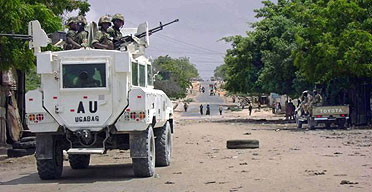By Daniel M. Austin
Impunity Watch Reporter, Africa

ABUJA, Nigeria – On Saturday, October 16, Nigerian State Security Services (SSS) raided the home of Charles Okah, a suspected terrorist. He was taken into custody and is being investigated for allegedly funding terrorist activities. The Nigerian government believes that Okah financed the terrorist attacks that rocked the capital Abuja, on October 1. The attacks, which occurred near a parade route, killed twelve people and injured dozens more. Okah was arrested in the Apapa district of Lagos, a city in the southern part of Nigeria, referred to as the Niger Delta.
Charles Okah is the brother of Henry Okah, a former commander of the Movement for the Emancipation of the Niger Delta (MEND), the dominant terrorist organization operating in the Niger Delta. Henry Okah is a suspected arms dealer who has supplied weapons to the insurgents operating in the Delta. Okah fled Nigeria for Johannesburg in July 2009 after his release from prison after serving time for gun running and treason charges. He was arrested shortly after the attacks on Abuja and is facing terrorism charges in South Africa for masterminding the October 1 attack.
Charles Okah’s arrest comes a day after media outlets received an email announcing threats of another terrorist attack against the capital. The Nigerian government is extremely concerned because the October 1 bombing followed a similar pattern. On October 1, MEND militants warned journalists that Eagle Square in Abuja should be avoided. Within an hour of this warning, a series of bombs were detonated in Eagle Square.
Nigerian security officials believe Charles Okah sent the email warning about the attack on Eagle Square. The email was sent from a MEND Yahoo! email account and was signed by nom de guerre of Jomo Gbomo. It is believed that several militants associated with MEND sign their statements with this name including Henry and Charles Okah.
Nigeria is the most populous nation in Africa with substantial oil reserves, particularly in the Niger Delta. Nigeria is competing against Angola to be the largest oil exporter in Africa. Normally a peaceful nation, Nigeria has experienced a wave of tribal differences that have led to flashes of violence. It is believed that the violence orchestrated by MEND militants is attributed to their outrage over policies that allow the central government to collect billions of dollars in oil revenue while the Niger Delta remains impoverished.
For more information, please see:
Canadian Press — Security official: Brother of alleged militant leader arrested over Oct. 1 car bombings –- 17 October 2010.
IOL News.co.za — Another blast warning after court appearance –-17 October 2010.
Macon.com — Another blast warning after court appearance –- 17 October 2010.
Reuters Africa — Nigeria arrests Okah brother after bomb threat: source –- 17 October 2010.



